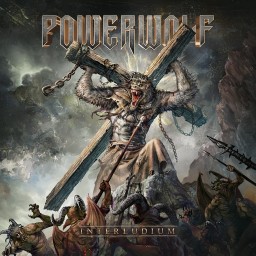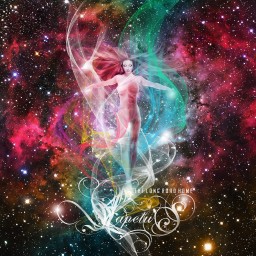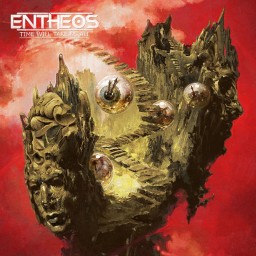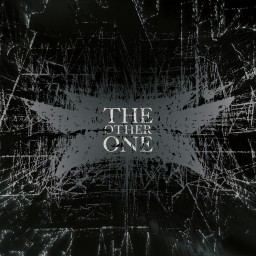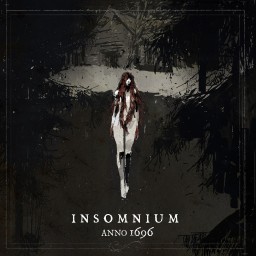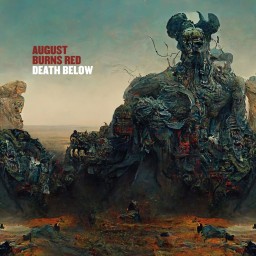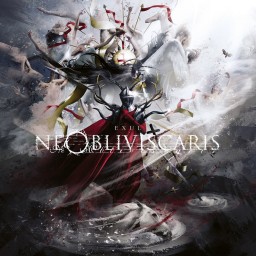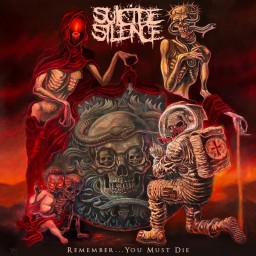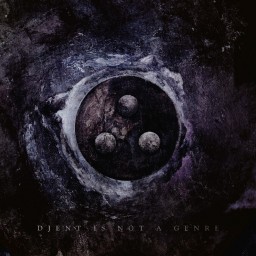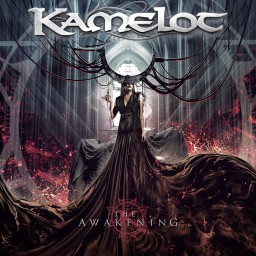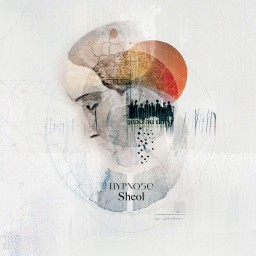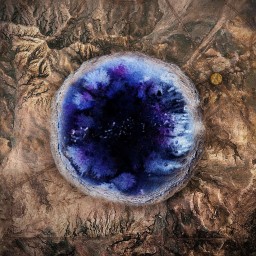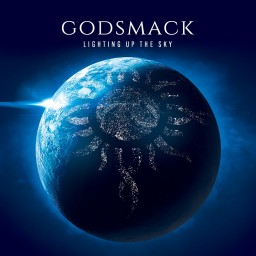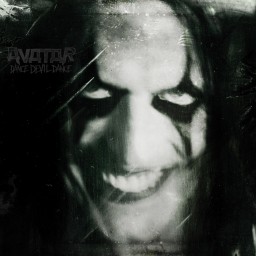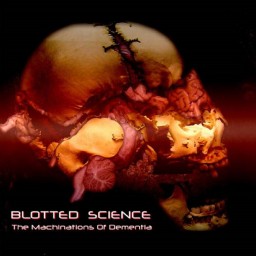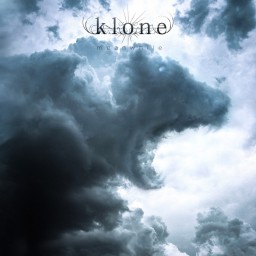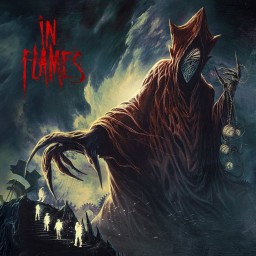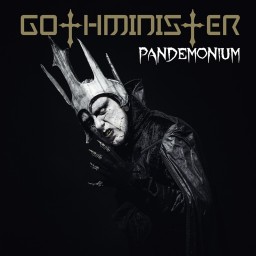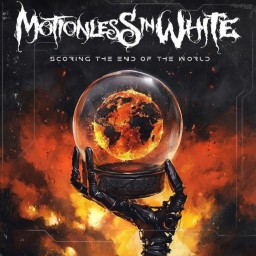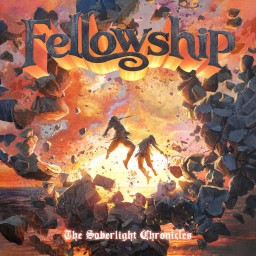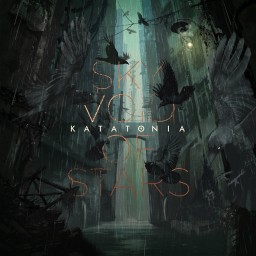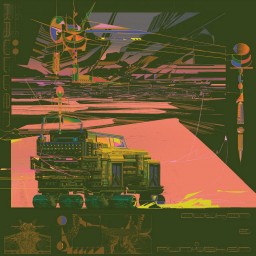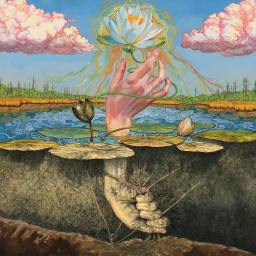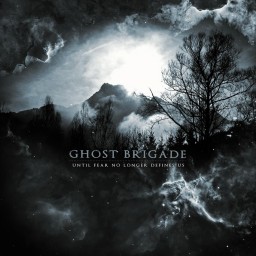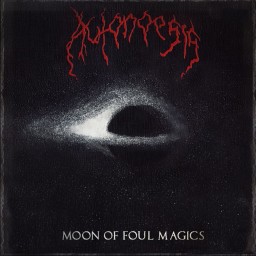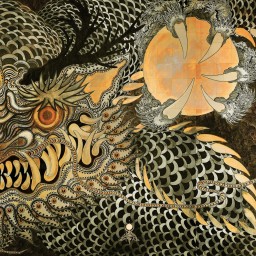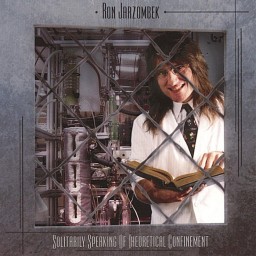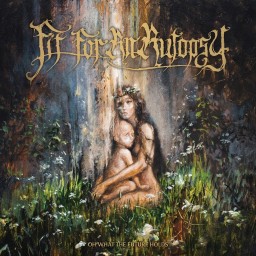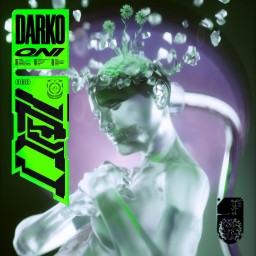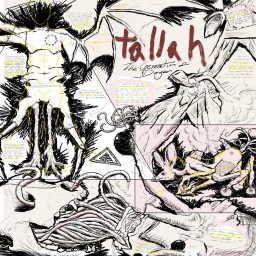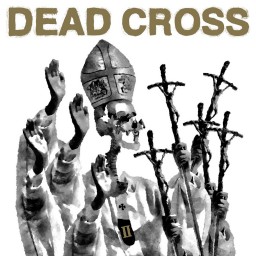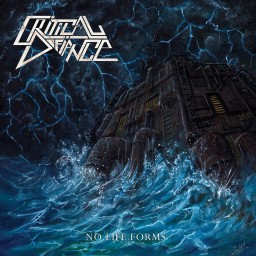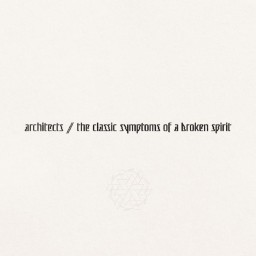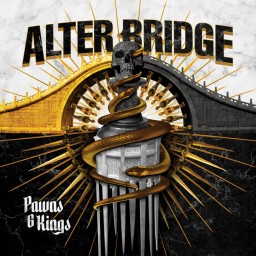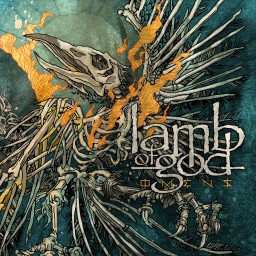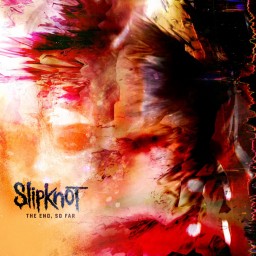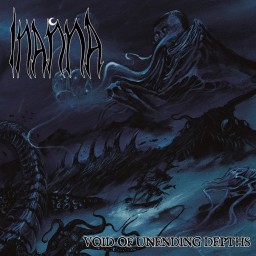Saxy S's Reviews
Hey Kids, ya Like Power Metal?
Powerworlf have been around for a surprisingly long time and have for a number of years done one thing and only one thing with their music; high octane, mystical power metal. And for the most part, Powerwolf are really good at this one thing that they do. It's usually produced very well, the record is performed to base standard of quality, the vocal performances are strong and match the record "epic" scaling, and it's usually complimented with some great guitar work from Matthew Greywolf.
Of course, being really good at one thing means that new records leave me with very little else to discuss. If you've listened to anything by Powerwolf within the last five years, you already know what to expect on Interludium. That also comes with many of the faults that previous albums have including, most insufferably, the piercing organs during "Midnight Madonna" and "Wolfborn".
Otherwise it's acceptable. Nothing really jumps off the page as being a cut above the bands best album (i.e. Blessed & Possessed), but you can't go wrong with it. I hope with a title like Interludium that Powerwolf are ready to break free of the chains keeping them held down by the confines of power metal, but something tells me that won't be the case any time soon.
Best Songs: Wolves of War, My Will Be Done, Altars on Fire, Living on a Nightmare
Genres: Power Metal
Format: Album
Year: 2023
Sometimes a bands expectations precede them. There is a certain point when a new act is getting ready to break out and present the world with a new fresh new sound, only to see the names of album collaborators and then formulate relatively predicable expectations. That was the case with Iapetus, a New York prog-death band and their 2019 album The Body Cosmic. As soon as I saw the credits featuring the drummer of Ne Obliviscaris, any sense of wonder was squashed. The album was still good, but minus a few surface level changes, this really was not anything revolutionary in either progressive music, or melodic death metal.
And so, as part of the Review Draft, I had the chance to listen to the bands 2017 debut. And it was pretty rough as a whole. Don't get me wrong, I enjoy the compositions on display here and how they split the difference between the post-metal soaring of Ne Obliviscaris, combined with a melodic death metal sound that is indebted to Insomnium. The performances are very impressive, but not super technical to whip me out of its very comfortable groove and flow. Overall, The Long Road Home is a very loud album with very few calming sections, and the few that we get are relatively short.
The album has a number of extended song structures, so it would be fascinating to hear how Iapetus are able to make these tunes work as part of a whole. Well the record is actually quite impressive in that regard. Like Ne Obliviscaris, songs have a sense of momentum and direction that is quickly changing, and sometimes it can result in some very strange style changes. But songs like "My Father, My God" know where they are going and how to say everything that needs to be said, while still making it sound like a coherent idea. "Lachrymae Rerum" meanwhile, does not get the album off on the right foot after the first two instrumental tracks, which are fine I guess, but I feel like they serve more of a textural purpose than a melodic one.
Given the influence, it should come as no surprise that this record dabbles in fantastical themes and environmentalism. As such, this can be a long album if you are not prepared for it. Considering how much it sounds like Insomnium melo-death instead of Ne Oblivscaris melo-black might also play into its length being a determent. "Eviscerate Divine" and "The Long Road Home" do not make for the epic conclusion that Iapetus were expecting, since both songs have very similar instrumental ideas and together take up nearly half of the albums runtime. Perhaps only one of them would have made this albums conclusion sit more comfortably, but here we are. In the end, I think Iapetus' biggest problem is that they have lots of good things going for them, but they try too hard to play into the "ten minute epic" school of progressive songwriting that it hurts them more than it doesn't. The Long Road Home is an album worth exploring, but you'll likely find yourself appreciating the destination more than the journey.
Best Songs: ...Of Hangmen & Vertebrae, Savior Solitude, My Father, My God, The Long Road Home
Genres: Death Metal Progressive Metal
Format: Album
Year: 2017
The third studio album from Californian tech-death metal band Entheos is my first exposure to the the bands music and it leaves me with a lot to think about. It is certainly a unique album in the technical death metal scene amidst an endless revolving door of technical guitar wankery, and overproduced, overperformed percussion. The bass on this record is heavily featured and left me with Ne Obliviscaris tones, which is a great place to take influence from. The vocals are the real standout though as Chaney Crabb is able to perform with an unprecedented range for any type of death metal in recent memory. There are clean vocals on this album, but they are spaced out and implemented with distinction and highlight this albums softer, progressive moments more efficiently.
While I do enjoy the modulating back and forth between more melodic death ("In Purgatory") as well as death doom stylings of "I Am the Void" and "Time Will Take Us All", it does not feel right when they are surrounded by "Absolute Zero" and "The Sinking Sun", which are just a couple of the albums technical death moments. And while the production is nice, it still does not change the fact that these tracks are not very well constructed; they fall into the very comfortable range of most technical death metal albums with their sporadic tempo/style changes and no sense of direction. Tunes like "Darkest Day" and "Clarity in Waves" are more tolerable due to shorter runtimes, but "The Sinking Sun" is over seven minutes and does not leave a lasting impression on me.
I think Entheos have some sparkling moments on Time Will Take Us All, but they feel held back by a number of issues that generally plague the technical death metal scene from its core. Shoutouts to a smaller band doing new and invigorating things in a subgenre that I do not particularly gel with all that well, but this ain't it chief.
Best Songs: In Purgatory, I Am the Void, Darkest Day
Genres: Death Metal Progressive Metal
Format: Album
Year: 2023
It has been just about a decade since BABYMETAL embraced the world with their presence and I think it is safe to say that the controversy around this group is long gone. Their brand of niche metal meets J-pop was a strange combination for most (especially in the west), but one thing you could never accuse BABYMETAL of was not having fun. And now, bands like Electric Callboy and older bands like Alestorm are showing resurgences among the quagmire of the same, boring metalcore breakdowns played to death by every new band.
BABYMETAL's biggest problem on their last album was lack of variety and that does seem to be resolved here, but probably not in the way the group was expecting. This record feels a lot darker than before, with tracks like "Divine Attack - Shingeki -" sounding closer to melodic death metal; and it isn't the only time a song like this appears on the record. Unfortunately the darker tones never feel as if they are fully realized. Metal Galaxy had a track featuring Arch Enemy's Alissa White-Gluz and a feature like that on songs like "Mirror Mirror" or "Believing" might have made them resonate better.
The strange thing is that when BABYMETAL are experimenting with synths and electronics, the hooks are vastly more enjoyable and the compositions feel more complete. "Time Wave" is clearly borrowing from Electric Callboy, while "Monochrome" and "The Legend" are about as close to "pop metal" as you can get (even if I could do without the terribly mixed glitchy pops before the chorus on "Monochrome"). My biggest issue with this however is that BABYMETAL are now closer to the western hegemony of mainstream alternative metal than ever before. While I am all for ditching "quirky" as a describer of BABYMETAL's music, some identity is lost in the process, with "Believing" performed all in English, and the worst example on the record.
In short, I wanted to like The Other One more than I ended up doing so. The darker tones can be a welcome new addition to the music, but always seem to be missing something, and while the electronics do produce the albums better moments, they do reveal cracks in BABYMETAL's armour as the j-pop/metal hybrid they were originally billed as.
Best Songs: Divine Attack - Shingeki -, Time Wave, Monochrome, THE LEGEND
Genres: Alternative Metal
Format: Album
Year: 2023
Insomnium have always been a band that creates a style of progressive death metal that I should really enjoy. And for the most part throughout their career's, the band has succeeded at turning me into a fan. Despite what the general consensus may say, I still claim Winter's Gate as one of, if not the, pinnacle of death metal throughout the 2010s without much of a healthy competition to challenge that spot. Granted I am a nobody when it comes to understanding or appreciating death metal in its most straightforward form, and would much rather enjoy a melo-death thumping, so take my rating with a gigantic grain of salt.
That being said, with all of my past success with Insomnium in the past, I should have given the bands most recent album, Anno 1696 a spin when it came out, instead of just over a month later. Part of that had to do with March being an incredibly busy month for new progressive releases from Haken, Periphery and Ne Obliviscaris. And Insomnium kind of... flew under the radar. And after listening to Anno 1696, I understand why this happened.
Let's not mince words here: Anno 1696 is a great album. For Insomnium, they know how to keep a listeners attention without doing anything particularly ear popping. Despite the record having three tracks exceeding seven minutes, not one of them feels like it. Each track is well constructed and constantly refers back to the opening set of themes and motifs and further elaborates upon those themes, preventing "Godforsaken" and "The Rapids" from becoming stagnant and predictable, or slapdash and disjointed. Furthermore, the mixing on this record is superb! It takes a lot of work and practice to be able to match the electric guitars with the acoustic passages and have them both sound full and robust, but Insomnium did it here. Usually the acoustic passages are given a higher gain, which promptly butchers the death metal sections; a large reason as to why so many acts don't do it (unless they live in Scandinavia I guess).
However, Anno 1696 is a record where Insomnium are embracing their gothic sounds more than ever before. Tunes like "White Christ" and "The Witch Hunter" are slower and more brooding and have more in common with fellow countrymen Swallow the Sun than anything Insomnium have ever made. And hell, "The Unrest" has nods to Ghost with the vocal layering's during its chorus. In fact, the only track on this record that sounds closest to "death metal" is the closer "The Rapids". I clearly do not care too much for this style change because Insomnium have been able to work in gothic textures in their music before and this is just more explicit. However, I cannot help but feel like Insomnium had to give up a bit of their own identity in order to capture this progressive gothic death metal hybrid that they have created here. For what it is, Anno 1696 is a very good piece of music, but within the discography of Insomnium, it feels like a step down, despite the progressive songwriting.
Best Songs: White Christ, Godforsaken, The Witch Hunter, The Rapids
Genres: Death Metal
Format: Album
Year: 2023
Yet another solid output from one of metalcore most consistent (and best) acts. August Burns Red are one of the best at writing catchy melodic hooks in their music, without sounding too much like a Killswitch Engage, Bullet For My Valentine or Avenged Sevenfold. They have always been a band that have toed the line of how far metalcore can go before it isn't metalcore anymore through some sporadic time and style changes. Death Below is certainly no exception to this rule, but even the albums most intense moments, these tracks don't feel like they are falling apart. Each moment is particular to the cause and gives the album a real sense of direction instead of just breakdowns. Clean singing makes an appearance on this record also and if there was any band that could benefit from pop shout choruses it would be August Burns Red.
That being said, it is still an August Burns Red album and it does have its faults. Most notably, the inclusion of two tracks on the bookends of the album of nearly eight minutes. I like how August Burns Red are embracing some more progressive influence here, but "The Cleansing" and "Reckoning" are in two different ballparks in terms of quality. "The Cleansing" sounds fresh and innovative, even if the off kilter chord progression can make me uncomfortable. "Reckoning" is less impressive, opting for a soft bridge for Spencer Chamberlain's clean vocals to pierce through. And from top to bottom, this mixing of the snare drum is outright distracting; when playing in half-time it can be tolerable, but when the drummer switches to double time or god forbid blast beats, the snare sounds like a brick.
But despite all of that, I cannot say that this is a bad album. In comparison to the plethora of bog standard chugg-chugg-chugg metalcore albums that get popular, August Burns Red are always looking to push the boundaries of what can still constitute as metalcore, and they have been doing this for a long time. The progressive arc is a welcome touch and gives this album a unique sound among the rest of the bands back catalogue and despite its length, it never feels like its overstaying its welcome.
Best Songs: The Cleansing, Ancestry, Revival, Deadbolt
Genres: Metalcore
Format: Album
Year: 2023
...I was nervous for this one.
I've made it clear that Ne Obliviscaris are one of extreme metal's most interesting and unique bands in the past, and I still think that Portal of I is one of heavy metal's most important records of the 2010s. In a year where Opeth drastically changed direction and started composing in a style closer to Rush progressive rock, Ne Obliviscaris took the elegance of Opeth-ian songwriting combined it with Allegaeon technical death metal, while the inclusion of dual vocals and violin melodic leads were the icing on the cake. However, my fascination with this group soured on 2017's Urn. While objectively a good album, I could not help but feel like this band had found their comfort zone and would stay here instead of continuously innovate; instead opting for a same-y progressive metal sound that progressive snobs would eat up on name recognition alone.
Turns out the band felt the same way. Instead of maintaining a two/three year release schedule, Ne Obliviscaris took some time off to work on this album and revitalized my anticipation with the promotion single "Equus". Now I have had the chance to sit and resonate with Exul and I am reminded once again why this band are near the top of so many lists that speak about modern progressive metal. It might not be the most outwardly progressive album, but beneath the new songwriting layers, Exul might be among Ne Obliviscaris' best.
If you've listened to Ne Obliviscaris in the past, then you kind of know what to expect. Otherwise; imagine if 2000's Opeth were heavier, but with violin melodic leads. While previous Ne Obliviscaris albums have always had a focus towards black metal, this time around the subgenre seems to be the other extreme metal giant; death metal. You can hear immediately on the opener "Equus" and into "Miseriorde I - As the Flesh Falls" through heavier blast beat emphasis and chugging guitar rffage. The buildup of "Misericorde II - Anatomy of Quiescence" is phenomenal with its attention to detail and allowing the tune to gradually build up to its cathartic release. The layering of the strings through layering is a decision that raised questions at first, but they fill out many of the arrangements during softer sections sans guitar. Like with all albums from this group, the heavy prominence of bass is well received and causes its heavier moments to hit with greater importance instead of just doubling the rhythm guitar with bass. And the dual vocals of Xeonyr and Tim Charles is one of the best chemistries in all of heavy metal music.
To be honest, it is quite difficult to nitpick this album. I guess "Suspyre" had some very strong ideas, but the track honestly felt too avant-garde for its own sake. Likewise, "Graal" is another great track that sounds like it could be a staple of the bands catalogue, but on a record that is so vastly different than other projects, having a more standard Ne Obliviscaris track can feel like a letdown. I am very happy that this band rediscovered what made them so revered initially and provided 2023 with its first essential metal listen.
Best Songs: Equus, Misericorde II - Anatomy of Quiescence, Graal, Misericorde I - As the Flesh Falls
Genres: Progressive Metal
Format: Album
Year: 2023
There are few things in this world that disappoint me more than wasted potential. Suicide Silence were a band hellbent on a warpath to burn down every bridge they ever built when they dropped their 2017 self titled album, after telling fans who wanted them to "just play the old stuff" to fuck off. I respected the resolve, even if S/T was a very poor display of a new sound for the band.
Fast forward five years later and the band have gone back on their word and released an album that sounds like it should have been left in 2008. It should have been easy for a new look Suicide Silence to refine a nu metal sound for the modern age, without losing any bit of the bands identity. But instead, they caved under the pressure of those "fans" who could not bear to see their band evolve and change with time. The band just copied Metallica from St. Anger to Death Magnetic.
And so we have Remember... You Must Die, or The Cleansing, Pt. II. It is exactly what you would expect from a late 2000s deathcore record: overmicd kick drums, awful levelling, guitar chugging without any bass presence to compliment, lyrics about killing as well as being killed, and a heavy disconnect between the death metal and the hardcore breakdowns, both in terms of style and delivery.
This is about as barebones a deathcore album as you can get, coming from a band that should know better. Suicide Silence helped put deathcore on the radar, but now the band is stuck treading water. A lot of bands from that time are making vastly different music today and they have gotten a lot better for it, "fans" be damned. This isn't as bad as S/T, but that isn't saying much.
Best Songs: Capable of Violence (N.F.W.), Alter of Self
Genres: Metalcore
Format: Album
Year: 2023
This Is Not an Album Review
We are now five albums into Periphery's career and this band is finally starting to figure out how to write strong pieces of progressive metal. This band used to be all about the technical wankery and it routinely found itself getting in its own way. Periphery V: Djent Is Not a Genre is the first record that seems to understand that the technical songwriting compliments the melodies, not overpower them.
I was genuinely impressed by the first promotional single "Wildfire" as well as "Dying Star" by how complete they felt. It is progressive metal of course, so you can expect plenty of technical prowess, and plenty of down tuned guitars for some chunky breakdown grooves. But you'll be surprised by just how much detail has been put into Spencer's vocal mixing.
Djent might be the name of the album, but that might be only scratching the surface. Whether it be the jazz interlude on "Wildfire", the plunderphonics of "Everything Is Fine", the ambient interlude of "Dying Star" or the full on late era Linkin Park song "Silhouette". The last of those tracks deserving special mention because it comes at an opportune time on the record as a much needed breather following four fairly aggressive tracks, before the album calms down considerably until the end.
This record has a lot of things going on throughout a runtime that exceeds an hour, and I must admit, it does get a little bit overwhelming at times. Perhaps in that regard, this record has the exact opposite problem of Morgan Wallen's One Thing at a Time. But Djent Is Not a Genre is far from boring. I think the overall progressive/djent sound of the record is consistent enough that I don't think people will be as quick to dismiss this as "just another Periphery album". This is a fine place for progressive djent to go and the most enjoyment I've had with a Periphery album since Juggernaut.
Best Songs: Wildfire, Wax Wings, Dying Star, Thanks Nobuo
Genres: Progressive Metal
Format: Album
Year: 2023
Hindsight is going to be gracious for Kamelot this year because I did not expect much from The Awakening, but was pleasantly surprised. This new album seems to have refined a few quips that many noticed about the last record, The Shadow Theory, with how same-y it all sounded. An extended break between albums allowed for lackluster records from Within Temptation and Nightwish to drop uncontested and Kamelot knew better than to make those same mistakes.
The first half of this record is very good, from "The Great Divide" until "Midsummer's End". These tunes have variety and the choruses are well constructed and easily memorable. I was quite disappointed by how soft in the mix Tina Guo's cello is on their two features, especially "Opus of the Night (Ghost Requiem).
The back half of the album is much more hit and miss. Tracks begin to blend together when they have the same tempo and style like "Bloodmoon" and "Nightsky"; which structurally sounds horrible when these two songs are back-to-back. "New Babylon" features some counterpoint vocals from Melissa Bonny and Simone Simons, which was nice to hear; the rest of the record does have harmony vocals as well, but it was a welcome change of pace when those backgrounds were by someone other than Tommy Karevik.
The album is bombastic and powerful (as it should be) and when it hits its moments, Kamelot are firing on all cylinders. But the frequency in which these happen is not as frequent as I would have liked. It draws from Epica, but cannot perform its dynamic swells as concisely as an album such as Omega. A strong recommendation for fans of symphonic power metal, but then it's up to you to pick out the eye opening moments.
Best Songs: The Great Divide, One More Flag in the Ground, The Looking Glass, New Babylon, My Pantheon (Forevermore)
Genres: Power Metal Symphonic Metal
Format: Album
Year: 2023
Sheol by Hypno5e is one of those albums that feels really easy to digest and welcome in to the new wave of progressive metal, but hidden beneath a thin veil of post-metal texture is a record that has a lot more to say than you may anticipate. This record has a gorgeous feel to it and songs are well constructed and executed. I really enjoyed the 2nd parts of both "Sheol" and "Slow Streams of Darkness"; even though both tracks have a lot of girth to them as big boy progressive metal tunes, everything sounds like it belongs together and is highlighted by a great dichotomy of sound. The post-rock and atmospheric portions make a big impact and when those heavy Gojira inspired heavy breaks hit, they have such a force to them that is just the kind of breakdown that I like to hear.
However, there are a handful of smaller tracks that connect these two part suites together and that seems to be where the album is at its weakest. Don't get me wrong, I enjoy "Lave from the Sky" and "The Dreamer and His Dream", but without the same attention to dynamic growth and complete songwriting, they do sound a little bit off. They do make for great individual tracks, but as part of a whole album, they feel less than involved and drag out the runtime by just a bit too much.
Hypno5e are doing great work with the progressive metal they make and are more than capable of carrying the torch that Gojira left when they became more accessible in recent years. But without any truly defining feature, this band is bound to fall into the purgatory of Opeth/Gojira imitators.
Best Songs: Sheol, Pt. II - Lands of Haze, Lava from the Sky, The Dreamer and His Dream
Genres: Progressive Metal
Format: Album
Year: 2023
The second full length album from Wisconsin based The World Is Quiet Here is a fascinating record, even if I cannot call it a great one. This is progressive metalcore with a heavy emphasis on the "metalcore" portion of that moniker. I entered into this album knowing nothing about the band, but seeing the subgenres my mind immediately went to Between the Buried and Me projects like Alaska and Colors. The was not likely the best comparison point because the record can only dream to live up to those standards.
I think a recent band that The World Is Quiet Here are closer to replicating is Fit For An Autopsy. The technical passages serve more as interludes and transition sections to more breakdowns and groovy parts. The band does have some variety with softer interludes on "Moonlighter", but they have a difficult time making those sections work as part of a whole rather than feeling like just a random style change.
There are some really well constructed songs here, but I found that most of them are the ones that don't exceed nine minutes; "Aphelion", "White Sun" and "Moonlighter" are well constructed, they don't overstay their welcome and feel like complete ideas. Whereas "Ossuary", "Heliacal Vessels" and "Impetus I: Torrid Sands" drag the record out... almost as if this band were trying to replicate Colors, which, as already mentioned, Zon sonically shares very little in common with that album.
I'm not even opposed to vocals of Lou Kelly. The cleans are certainly an acquired taste, but I think they give the record character. They definitely sound theatre-y and I've spoken about theatre vocals in the past and that they can become distracting if not executed properly. I think here the vocals are isolated enough behind harsh vocals that they don't become distracting, just... weird.
I think The World Is Quiet Here are an acquired version of progressive metalcore, but I can hear signs of greatness. I think if this band cut back on some of the fat, wrote more concise with their songwriting, they could make a great album. For now, it's fine, but I wish there was more.
Best Songs: White Sun, Heliacal Vessels I: The Mothers of No Kin, Moonlighter, Aphelion
Genres: Metalcore Progressive Metal
Format: Album
Year: 2023
The last two Haken albums (Vector and Virus) have been surprisingly disappointing. One of the things that made Haken stand out in comparison to their progressive contemporaries was how much more fun their music would be, and that was displayed wonderfully on 2013's The Mountain. And so, it's been a decade since that release and Haken are finally back to enjoying making music again, and I must say, those who listen to it should enjoy it just as much.
I've said somewhere in the past that heavy metal music tries too hard to be angsty and angry all of the time that sometimes I just need a break from it all. It happened with Electric Callboy last year, and now Haken are attempting to reclaim their place at the table. And they pull it off in surprising fashion. Now don't get me wrong, Fauna does have a certain unease about it that stirs in the undertones and subtext, so if you expect the album to just tell you what it's thinking, you're going to get left behind. "Nightingale" sets the tone as a hybrid of their serious tones of the last five years, and molds it together with the bands signature quirkiness that was found on The Mountain ten years ago. As the album continues, tracks like "Lovebite" and "Island in the Clouds" are just so cool and refined; they tell a good story all on their own as well apart of a whole album concept, and they are both just fun songs.
What it boils down to is whether or not you are willing to accept a "return-to-form" where Haken are not concerned with telling a deeply personal concept with themes of death, destruction and a potential oncoming apocalypse. It is a nice change of pace coming out of heavy metal music and I will be eagerly awaiting the progression of Haken in the future.
Best Songs: Taurus, The Alphabet of Me, Island in the Clouds, Lovebite, Eyes of Ebony
Genres: Progressive Metal
Format: Album
Year: 2023
If there is one thing (and trust me, there is ONLY one thing) that separates the new Godsmack album Lighting Up the Sky from recent output by the Offspring and Five Finger Death Punch is that Godsmack is not filling this album to the brim with covers of far better songs; the record is, at surface level, original. But even that comes crumbling apart after more than a glancing listen to this record.
This album is dull in a way that those bands mentioned previously would be thoroughly impressed by. I understand that this style of grungy, hard rock/metal was popular during the 2000s and for a time, I used to listen to records like Faceless. But this is 2023, and Godsmack have gone nowhere since. They've been pumping out iron and albums on a semi-regular basis with no forward momentum or drive. Good luck being able to decipher which song is which on Lighting Up the Sky because barring the terrible ending from "Let's Go" to the title track closer, nothing pops.
I hold a special resentment for bands like Godsmack and any of the nostalgia farming bands that never change because boomer dads will eat this shit up. This is about as generic butt rock as they come.
Enjoy the retirement home and lighting up Bar-B-Q's.
Best Songs: Soul on Fire
Genres: Alternative Metal
Format: Album
Year: 2023
The new Avatar album continues in the same lane as Hunter Gatherer a few years ago as the band finds a heavier sound that remains controlled, without going full stadium rock as Avatar Country did.
One way that Dance Devil Dance separates itself from like sounding acts is how much more fun it sounds. The title track and "The Dirt I'm Buried In" are some of the standouts here. But what really separates them is while even though they might feel more "fun", they can still lure you in with darker tones and key centers. In that regard, this record does share a bit in common with Electric Callboy. That is until the truly slapstick "Gotta Wanna Riot" comes on and the whole feel of the record just plummets.
That's not to say that I do not like the back half of this album on its own, but the sequencing is bizarre. Something about the songs "Cloud Dipped in Chrome" and "Violence No Matter What" coming in after "Gotta Wanna Riot" just feels... wrong. While the record as a whole does not feel intrusive or bad at all, it is missing a true highlight as previous Avatar albums are known to contain. I would find myself hard pressed to listen to this anywhere outside of the dancefloor.
Best Songs: Dance Devil Dance, Do You Feel in Control?, The Dirt I'm Buried In
Genres: Alternative Metal Groove Metal
Format: Album
Year: 2023
Well if it isn't my old friend Ron Jarzombek once again!
I must admit, I thought that as I was getting older my ears were not as great as they once were, but one playthrough of Blotted Science's only full length album, The Machinations of Dementia and I already knew which guitarist had their handprints plastered all over this record. This record is certainly not my cup of tea, but I can see potential for an album like this if it had that missing piece to put it all together. It needs a melodic line or a vocalist to keep the guitar wanking in check instead of allowing for it to go unchecked for almost an hour. The records first two tracks have some solid foundational work put into them and they sound like fully developed songs. Basically everything else falls into this empty void of impressive showmanship, but leaves me with nothing else to talk about.
And what pains me the most is that songs like "Narcolepsy" have worked for me in the past, but once again, this one is missing one important piece to connect the parts together. I am referring to Between the Buried and Me's Colors from the same year. Structurally, they are nearly identical records, but Ron Jarzombek and company don't have the songwriting chops to do anything other than guitar solo for an entire album. By the time the eight minute track "Activation Synthesis Theory" was complete, I just wanted this thing to be over. There is only so much I can say about an album that does not evolve or reinvent.
Best Songs: Synaptic Plasticity, Laser Lobotomy, E.E.G. Tracings, The Insomniac
Genres: Death Metal Progressive Metal
Format: Album
Year: 2007
I had a really good time listening to the new Klone album Meanwhile. Having no experience with this band prior, I went in with very little expectations and came out with a fine display of progressive meets alternative metal. These two styles rarely meet as they do tend to be counterintuitive to one another, but Klone have found a way to write some very catchy pieces of music in the Katatonia vein, while still providing a more than vast display of variety and power through the compositions and songwriting. I'm really enjoying vocalist Yann Ligner's style and delivery here as is an obvious standout to set Klone apart from their influences. This record has the feeling of a record such as Retribution by Nightingale, but so much more than that.
Besides that, everything else leans into this bands favour for me; length of songs not outstaying their welcome, number of songs, length of the album, it all forms together into a neat, well performed package. One of 2023's first great records.
Best Songs: Blink of an Eye, Scarcity, Apnea, Night and Day
Genres: Alternative Metal
Format: Album
Year: 2023
It is nice to hear In Flames returning back to a sound that is closer to melodic death metal such as Come Clarity. But that is not the complete story. Foregone still relies a lot on pretty standard instrumental riffage that, while certainly pleasant, does not do very much to distinguish each track from the next, whether that be through the same prominent key center on almost every track, or lack of tempo variety. This record still has its fair share of clean vocal choruses, but due to the lack of instrumental variety, this also seeps in to the vocal variety as well.
I wish there was more to say about Foregone. It has the pieces of a modern day Trivium album, but without any of the variety that band provides.
Best Songs: Meet Your Maker, Foregone Pt. 1, Pure Light of Mind
P.S. I've given this a few more listens since I initially reviewed it and I found that the return to melo-death is not as triumphant as I originally envisioned. While I am certainly no elitist who thinks clean vocals do not belong in death metal, when there is an instrumental lead, it is not able to compliment the vocals well, clean or harsh. It just makes those vocals feel superficial. In Flames can make an excellent melo-death album, but their years of The Court Jester and Whoracle are well behind them.
Genres: Death Metal
Format: Album
Year: 2023
Norwegian industrial metallers Gothminister's seventh studio album is a fairly solid piece of industrial metal. The groove work is fairly solid from top to bottom and the vocal melodies compliment admirably. One of the reasons why I have never been able to appreciate Rammstein fully is because of the language barrier (my German is getting better though). Rammstein have solid melodies and tight knit grooves as well, but something about taking the intricacies of that language and creating a butchered English version does not help matters. Gothminister help by recording all the lyrics in English already....not that you need them because this is still standard in its gothic themes.
Speaking of gothic themes, does anyone else notice how much parts of this record sound like heavier Ghost? Forget about the industrial tinges and all of the synth leads, "Norge", "Mastodon" and "Star" sound identical. Which brings up my biggest issue with Pandemonium as a whole; the record is far too basic. It might borrow from Ghost, or EBM, or even other industrial metal giants like Rammstein, but not a lot about it feels innovative or unique to Gothminister. While I did enjoy it, too often I found the music falling behind and closer to background noise than anything I want to become invested in.
Best Songs: Pandemonium, Sinister, Bloodride, Run Faster
Genres: Industrial Metal
Format: Album
Year: 2022
The modern alternative metalcore scene is a hard subgenre to pin down. While it certainly has its modern upsides in Bad Omens and Spiritbox, a lot of them begin to blend together after a while, as many simply latch on to already popular/dead trends hoping to make a quick buck. Motionless in White is one of those bands for me. After attempting to go more alternative with 2014's Reincarnate, they became a band that would release records that get a bunch of acclaim, but are as quickly forgotten about a month later.
Case in point, I did listen to Scoring the End of the World back in June of 2022 and thought it was...fine. Chris Motionless is quite capable when writing well constructed tunes with some decent melodies. And, most important to me, incorporating breakdowns that do not act as an aside from the original concept or idea. But the record is held back considerably by not having any identity of its own. I had to do a double take at first when listening to the chorus of "Sign Of Life" because I thought for certain that Benjamin Burnley was the principal vocalist here.
And while the vocal comparison should not be that big of a deal, when the instrumentals sound like Breaking Benjamin too, that's where I have to draw a line. MiW goes a step further by having "Porcelain" sound like a modern Bullet for my Valentine tune, complete with some industrial/electronic spattering's that, while not offensive, I found to be more than distracting.
Scoring the End of the World has a lot of guest features and those tunes also feature some of the freshest sounds on the record. "Slaughterhouse" with Bryan Garris is a straight rump and serves as a good change of pace and intensity following the slower, more dreary "Porcelain". Then a trifecta of songs at the end of the record, however these tunes are not as enjoyable. starting off with "Cyberhex" sounding closer to a Mick Gordon track than even the title track, which actually features Mick Gordon! And in the middle of those two, we have the Marilyn Manson inspired "Red, White & Boom", which can be cheeky and fun, but I was not really feeling it.
And I think the reason why is because MiW have this long stretch of Breaking Benjamin/Bullet for my Valentine sounding tunes that aren't the most innovative things in the world. Sure they have breakdowns, but a metalcore band has to do more than add breakdowns to pre-existing formulas to make them enjoyable. And then, right at the very end of the album, they throw a curveball and show you something vastly different than what you've heard through the first ten tracks. The pacing of this record is so back heavy that I had less interest in those deviances than if they had been prominently featured early on in the record. Chris Motionless and company may have had some good ideas, but they are few and far between, and the sequencing is not good at all.
Best Songs: Sign of Life, Slaughterhouse (feat. Bryan Garris Of Knocked Loose), Cause of Death, B.F.B.T.G.: Corpse Nation
Genres: Alternative Metal Industrial Metal Metalcore
Format: Album
Year: 2022
There are times when I'm listening to heavy metal music (and as I have become older, those times have grown a lot closer) when I just need a break. All of the aggression and ruthlessness can become overwhelming and sometimes I wonder "are you guys actually having fun making music?" Well allow me to introduce to you to Fellowship, the newest power metal outlet making some of the cheeriest metal music of the 2020s.
My first impression of The Saberlight Chronicles was reserved as my first comparison point was Majestica and their 2020 Christmas album. And while I did enjoy Majestica a few years ago, something about this does not click the same way. Perhaps it was the promise of being uplifting, but then falling into a very comfortable, Rhapsody (of Fire) formula of songwriting, but perhaps without the indulgent guitar solo dominance. I find it to be adequate, but far from impressive, especially considering Blind Guardian and Avantasia have been able to push the power metal genre forward beyond over-the-top expansiveness.
At least the instrumentals are well performed. Unlike a record such as Pain Remains by Lorna Shore, the symphonic elements are clearly meant as supplements to the choruses. These backgrounds are well produced and compliment the leads well, instead of resorting to the Fleshgod Apocalypse approach of "MORE LOUD NOISES!" As for the compositions, songs like "The Saint Beyond the River", "Silhouette" and "Until the Fires Die" are likely to be complimentary mainstays in my metal playlists. The rest of it just flies over my head as sounding the same. The final two tracks "Still Enough" and "Avalon" are so basic and forgettable even after extending their runtime well beyond what was reasonable.
Perhaps Fellowship's brand of power metal is still in its baby steps and The Saberlight Chronicles is the band just getting their feet wet. Maybe the next album will sound completely different and Fellowship will set themselves apart from even the best that power metal has to offer at the moment. But for now, I thought The Saberlight Chronicles was satisfactory. There are touches of something greater, but too quickly resorts back to tired-and-true power metal formulas of Rhapsody and Nightwish.
Best Songs: Until the Fires Die, Glory Days, Scars and Shrapnel Wounds, The Saint Beyond the River
Genres: Power Metal
Format: Album
Year: 2022
The newest album from Katatonia is exactly what you should expect from this band and at this point in their career. That does not make it a bad thing by any stretch since Katatonia are some of the best when it comes to writing well formed progressive music, while still being able to fully elaborate musical ideas and structures.
This time around, the band are returning back to a time that included stronger gothic themes such as on The Great Cold Distance. The instrumentals are performed exceptionally well, with only the opener "Austerity" feeling a lot more disjointed than the rest. Part of that is the progressive tendencies that have been slowly making their way to the forefront of the compositions. Most of the time they are excellent; very Opeth-ian in the execution, but that opener just feels closer to Dream Theater than I am particularly comfortable with. The vocal melodies are in proper and consistent form, but as a whole, I found the instrumentals to be a less than vibrant palette; too much texture and power chords to compliment Jonas' vocals style, but that has been a consistent issue of Katatonia's since Brave Murder Day so I'm inclined to let it slide.
One thing that I notice while listening to Sky Void of Stars is how influential a band like Katatonia have become in alternative metal throughout the years. The biggest influence is modern Stone Sour, but textured guitars have a Deftones flare to them. It is also apparent to hear how much influence Katatonia have on a group such as Soen.
To be honest, talking about a new Katatonia record in 2023 is challenging because I know it's a good album, possibly great, but I cannot rank it anything higher. Part of this is their legacy status; coming out of Swedish death metal boom of the 1990s and transitioning to a hybrid of gothic, alternative and progressive music that is better than their acclaimed 1990s work. And as a legacy act, Katatonia have nothing left to prove and as such, have not really evolved much since Dead End Kings. It's more of the same from this band, but more of the same is still really good.
Best Songs: Opaline, Drab Moon, Author, Sclera, Atrium
Genres: Alternative Metal
Format: Album
Year: 2023
Industrial metal always seems to be a fickle genre to get right. For a genre whose sole purpose is to sound mechanical, many artists in recent years have been unable to to get out of a habit of obliterating the listeners ears with unpleasant and overbearing percussion mixing that finds its way right to the front and drowns out whatever groove/texture/melody is being performed by the guitar, vocals or whatever other instrument.
Now this is around the time in my review where I typically namedrop Daughters' 2018 You Won't Get What You Want, but in this case, I realize that record has more than its share of overbearing percussion. So I'll instead refer to my 2021 album of the year, Frontierer's Oxidized with its unusual blending of industrial and crushing mathcore and how that percussive texture only elaborates instead of dominates. Author & Punisher have a very similar effect on Krüller, but this time the foundation is plainly doom.
And this record is superb. The slower tempos make this album foreboding in a way that is almost new to me. I do not know how Author & Punisher were able to get away with song structures and melodic motifs this sticky and with this much passion infused into them; it feels counterintuitive at times. The use of a true electronic percussion does drag some of this albums' intensity down, but it does get redeemed by some monotonous vocals that are direct from post-metal, and the aforementioned doom infused guitar lines.
Compositions are great in terms of scale. The album has a dark text and subtext, but the song "Maiden Star" sits right in the middle of the record and throws in some unusual, but very welcome major key harmonies as a quick divergence before plunging back into the abyss on "Misery". It does not feel out of place at all and in much the same way, the full on electronic interludes on "Blacksmith" and "Misery" feel very much at home, since they were prepared by what came before.
I was in the need for some hard hitting doom metal today and man did I get a ton of that here! This is wonderfully produced, performed and executed by all involved. It's a doom metal album for those looking to step outside of the comfy confines of My Dying Bride and Swallow the Sun, without diving head first into funeral doomers Esoteric or Bell Witch.
Best Songs: Drone Carrying Dread, Incinerator, Centurion, Misery, Glorybox, Krüller
Genres: Drone Metal Industrial Metal
Format: Album
Year: 2022
One of 2022's under the radar progressive metal albums was from the band Moon Tooth. I have seen the name pop up on occasion in my progressive spheres and many of them were excited to hear the newest offering. And while I am fashionably late once again, Phototroph is a well performed, constructed and unique record.
Phototroph has an interesting dichotomy in its performance, which is split between a hybrid of nu-metal and progressive rock, mixed in with some clean vocal stylings of Nick Lee. What makes this work is how powerful the vocals are; while the instrumental has some heavy crunch that sometimes bleeds into metalcore, the lead vocals are pronounced with a strong backing presence. Much of the time, these vocals could border on the side of prissy, but here they work by way of sounding like a cleaner version of Mudvayne's Chad Grey.
The progressive elements on Phototroph are limited, but that allows for the songwriting to take center stage. I really enjoy the riffs on this record and how well they compliment the vocal melodies of "Back Burner" and "Grip on the Ridge". When the album is not working, it is usually on the back of trying too hard for the progressive crowd, which does lead to guitar solos taking precedent over everything else.
The song "Alpha Howl" encapsulates everything that Phototroph is about; the Slipknot chugging riff, the Mudvayne vocals, the math rock guitar leads/solos. If these sounds interest you, then you will likely find something of value in the Phototroph. I really enjoyed this, but the midway point of the record does drag a bit, so I don't think I can call it great.
Best Songs: Back Burner, The I That Never Dies, Alpha Wolf, Nymphaeaceae, Phototroph
Genres: Alternative Metal Progressive Metal
Format: Album
Year: 2022
I must admit, I had overlooked Until Fear No Longer Defines Us as a member of the Ghost Brigade discography. I heard this groups remaining three projects and found myself gravitating a lot more towards Isolation Songs and One With the Storm and with no prospect of a fifth album, I had little reason to check in on the record that is sandwiched between those two mentioned previously.
Upon listening to Until Fear No Longer Defines Us, I understand why I made that distinction because this album does very little to develop a melodic atmospheric sludge sound that Isolation Songs had figured out remarkably well before. Not that this was a bad thing; this album has a refinement on display that makes for a more consistent release for sure, even though I do not think its highs match those of the previous album.
Part of this is inevitably the sameness of the tunes. Many of them gravitate towards a similar tempo and remain locked in to that groove for a while. It isn't like doom metal though where the tracks can regularly exceed the ten minute mark; this records longest track is "Breakwater" at just under nine minutes. As a result of this, songs like "Torn" and "Divine Act of Lunacy" rarely outstay their welcome despite being fairly monotonous tracks overall. This also gives some greater emphasis to the songwriting on longer tracks like "Clawmaster", "Chamber" and "Soulcarvers", and these tunes do have some nice growth, even so considering how depressive this album can get.
The clean vocals of Manne Ikonen have a delivery that reminded me of some of Machine Head's softer moments on that groups most recent album, Of Kingdom and Crown, while the harsher vocals are a closer resemblance of The Ocean's lead vocalist, Loïc Rossetti. I think The Ocean comparison goes farther than just that the vocals sound similar, but the overall tone of this record has many similarities to The Ocean as well, from the tone quality of the rhythm and lead guitars, to the tempo selections, and even some of the percussive embellishment choices. Where Ghost Brigade succeed over The Ocean is a focus on melody, and "Clawmaster", "Grain" and "Cult of Decay" have strong melodic foundations, and the developments of those themes are more refined than any complete The Ocean album, and even the bands own Isolation Songs.
In the end, this record was a wonderful listening experience. Sure, the record is pretty formulaic by Ghost Brigade, and modern post-metal standards, but it does a far better job of keeping the listener engaged with sticky motifs and development instead of wallowing in texture.
Best Songs: Clawmaster, Divine Act of Lunacy, Grain, Cult of Decay, Soulcarvers
Genres: Sludge Metal Post-Metal
Format: Album
Year: 2011
Progressive thrash metal is a genre that I typically view with a concerning eye. Part of my reasoning for this is of how drastically different these styles are. What I appreciate in a thrash metal album is something that can be punchy and direct, while progressive metal is usually elongated with uncommon song structures and conceptual formats. Given my recent thrash metal tastes in recent years, you can clearly see why this subgenre sounds interesting, but leaves me with very little substance.
Of course, I also like melodically sound tunes that are well constructed, which leads us to Autonoesis and their 2022 sophomore record, Moon of Foul Magics. This record has some really good ideas that are being played and experimented with throughout its hour runtime. From a purely thrash perspective, the riffage on the title track, "Nihility, Endless Winter" and "The Conjurer" are very good and have a catchiness to them. Sure some riffs don't feel as exciting, however they have a uniqueness to them that, if this was the whole album, I'd be ready to call one of 2022's best.
But that's not what we get here. Progressive metal has a terrible habit of trying to blend multiple songs together and almost never pays off the way that the band expects. And so when this philosophy is brought over to a thrash metal idiom, it turns a record into Riffs: the Album with no connectivity. Autonoesis does a better job of this than most, but that simply because they are following the Vektor formula of slow-fast-slow. How do they change it up? Simply invert the tempos! It's a very basic way of writing progressive music, which in a way, does help Autonoesis with their thrash metal foundation. Tunes like "Raise the Dead" and the closer "Descending the Void" are decent, with varying levels of developing the riffage beyond the initial annunciation of the theme.
Another aspect that makes Autonoesis stand out is the heaviness. This band has clearly come out of the Possessed school of thrash with many elements sounding close to death metal, and even more tricks of the trade out of black metal. Acoustic interludes throughout the album such as "Vahöll" have a Saor-esque timbre, while the bridge of "Descending the Void" sounds closer to early Opeth. It honestly kills a lot of the momentum that has been building for passages prior, but many of them pick that intensity back up throughout and many of them sound excellent.
I will not admit to loving this, but I did enjoy my time with Moon of Foul Magics. The sound is rough and fowl at times and plays into the records benefit as both a thrash and extreme (blackened death) metal record. The riffing is above average and also knows how to balance (a)tonality. But the record could have been trimmed, many ideas are cut off before a conclusion because that's what the slow-fast-slow songwriting formula tells us to do, and momentum drops for much the same reason. I want to like this more since it seems like a thrash metal record targeted for me, but I feel like its missing something.
Best Songs: Moon of Foul Magics, Nihility, Endless Winter, The Conjurer, On Black Wings of Eternity
Genres: Black Metal Thrash Metal
Format: Album
Year: 2022
When this album begins with nearly eight and a half minutes of avant-garde choral chanting, you can expect some of the thing that you are going to get from Set Chaos to the Heart of the Moon. That transforms "Zâr" and then the three part "Vajrabhairava", which exemplifies all the reasons why Neptunian Maximalism are making some of the best drone music in modern times. This group is using the "drone" as their fundamental so that they can experiment/wank over the very simple ostinato found in the bass and sometimes in one of the stringed instruments as well. Saxophone and guitars galore performing in an unusual manner, while the chanting from the intro serves as complimentary material. The performance does not have a clear direction for melody per se, but the well established fundamental rhythm section before everything else kicks in gives each movement a sense of forward momentum and growth, which is quite the accomplishment for a genre that is notorious for having very little, if not any, momentum or growth (kind of implied in the name of the genre).
While I do enjoy "Ol sonuf vaoresaji ! La Sixième Extinction de Masse", it does not leave me with a lot to talk about. The two part "The Conference of the Stars" is far more interesting. Part one starts off simple enough, but about halfway through, the entire ensemble drops out allowing for a unaccompanied Soprano saxophone, with an octave filter, to take the lead. This was surprising since that droning fundamental bass line has been present throughout the entire performance up to this point; for it to disappear for as long as it does is shocking, and only exemplifies the crushing fundamental again when it returns. It's well placed and a much needed attention seeker, even for those more attuned to drone music than myself. Part two is a little less enjoyable. While certainly interesting as the rhythm section opts for a faster groove that is more closely aligned with post-metal, the chanting drops out as the guitar/saxophone duo trade over a single, slowly rising bass note. It's an interesting concept that saved by being the final "real" song of the set, but would likely fall flat as the final track of a studio album.
Neptunian Maximalism is a group meant to be experienced as a live performance rather than as a studio album. As such, this review is a little bit different than others. I rather enjoyed this new record from the band, and probably more so than 2020's Éons. That album was held back by it's length whereas this takes half of the time. This is a record that should be enjoyed as a complete performance instead of as subsequent parts. If that's for you, then Set Chaos to the Heart of the Moon is one of the best drone albums I've heard in a long time.
Best Songs: Zâr, Vajrabhairava (Parts I & II), The Conference of the Stars (Part One: Cleopatra the Goddess)
Genres: Drone Metal
Format: Live
Year: 2022
I knew when I initiated the review draft in the Infinite that I was going to have to listen to albums like Ron Jarzombek's Solitarily Speaking of Theoretical Confinement. This is pure guitar wank, delivered over a single, continuous idea, where the tracks are not serve as the end of an idea; it gives the record a conceptual feel. The biggest issue is that it takes the compositional approach of the Minutemen's fantastic record, Double Nickels on the Dime, with short song fragments and a whopping forty-five tracks! As a progressive metal album, this record comes nowhere close to matching Minutemen's punchiness and instant connectivity.
Progressive metal has a hard time on the best of days to create a concept album that is conceptual, but this takes it to the extreme in the worst way possible. Ron is switching to and from different patterns and ideas like a schizophrenic and does not have a care in the world for making this record memorable beyond "look how quirky it is!" With almost every track on the album running less than two minutes, songs that were compositionally uninteresting before become unbearable on repeated listens.
It becomes more apparent when you look at the names of some of tracks on this record and realize that most of them were likely afterthoughts: "Frank Can Get Drunk And Eat Beer", "Grizzly Bears Don't Fly Airplanes", "Sex With Squeakie" and "Tri, Tri Again" are just some examples that tell me nothing about the artist, or the artwork that is being presented. This is lifeless, guitar wank that I would like to thoroughly repress from my mind after being overrun with and endless stream of guitar students during post-secondary school who play this exact same shit. And now most of them are wondering why no one wants to hire them.
Best Songs: Melodramatic Chromatic, Battle Of The Hands, Sabbatic Chromatic, Two Thirds Of Satan, In The Name Of Ron
Genres: Progressive Metal
Format: Album
Year: 2002
I feel obligated at this point in the year to talk about my Revolution album of the year. Although calling this hardcore is more of a misnomer. Fit For An Autopsy used to be deathcore, but now resemble something closer to technical death metal. It's a very similar career trajectory to Job For A Cowboy. And like with that band, Fit For An Autopsy have gotten better with age, with Oh What the Future Holds likely being the bands best.
Fit For An Autopsy know the art of songwriting and explore this over the unconventional foundation of technical death metal. For every breakdown that is present on "A Higher Level of Hate", "Pandora" and "Savages", each one is given time to breathe and is used as a compositional tool for breakdowns later on in the piece, but also for the technical interludes that exist between the chugging. Even the albums lesser moments like "In Shadows" are still good compositions, but are held back by less than stellar hooks.
Like with all tech-deah/deathcore, I should make a quick note about the production, since that is usually the one thing that pulls albums down for me and Fit For An Autopsy are not about to ruin a perfectly good idea with piss poor production. Each idea is allowed to flourish and plays in tandem with the other instruments. The guitar work here is fantastic and is given a solid foundation by the bass and percussion to solo/chug over. The vocals are likely the weakest part since they rarely deviate from a common mid scream, but that's hardly a big deal breaker for me. The instrumentals are more than enough of an adventure that a steady vocal timbre is a welcome return home so to speak.
Not a surprising release, but one that I was thrilled hear and am still thrilled by almost a year later.
Best Songs: Pandora, Far from heaven, A Higher Level of Hate, Conditional Healing, Savages
Genres: Metalcore
Format: Album
Year: 2022
The newest release from Darko US is an album that I have a hard time trying to figure out who is meant to enjoy it. The deathcore tag here is misleading as there is next to nothing death metal about it. It has Tom Barber's vocals as well as pick scrapes, but Oni does not have a single blast beat on the record. On the other hand, it isn't metalcore either, because the vocals can become overbearing at times and those instrumentals do not provide the listener with a sense of comfort that you might expect from a record from August Burns Red or Killiswitch Engage. No matter what side of the Revolution clan you're in, you're all losers here!
This record is heavily dependent on groove instead of melody and so you'll find many of its breakdowns dependent on djent foundations. And while many of this records breakdowns are satisfying, I also find myself getting very tired of hearing them repeated over and over again without any direction. Darko US try to provide a semblance of growth and a much needed diversion by having Loathe-esque shoegaze/post-metal interludes. The biggest issue is that they aren't fully formed ideas and instead just feel like...well, interludes. The only one that comes close to resembling a full formed song is "Come Home", which is immediately followed by the albums non-closer "Redo". I don't know where the hype surrounding this album comes from. It's too heavy for the metalcore crowd, not heavy enough for the deathcore crowd, and those of us just looking for good music will have to look elsewhere.
Best Songs: Come Home, Dragon Chaser, Gantz
Genres: Metalcore
Format: Album
Year: 2022
The Best Slipknot Album of 2022
I have been pretty hard on Slipknot recently...and rightfully so. As much as they served as a gateway toward a heavier portion of metal music, they also seem to have grown a tired act with very little keeping them afloat beyond Corey Taylor's sheer persistence. Older music has grown cringy, and new music lacks any growth. So why would I not be excited to hear a new era Slipknot, with heavier metalcore tendencies and glitchy electronics via Frontierer?
Well this record is basically just that, so if those descriptors appeal to you in any way, you might find Tallah's new album, The Generation Of Danger a good one. The problem is that it does not do much else beyond the initial hybrid. The vocal timbre is varied as Justin Bonitz uses the full vocal range; nu metal rapping, singing, pig squeals and gutturals to hide that many of these instrumentals are pretty basic. The electronics and unconventional guitar patterns occur almost on cue within every single track and without any suspense or divergence, the breakdowns that fill this album are not that efficient. Not to mention how breakdowns constantly peak in the mix, making them less enjoyable to listen to then the melodic passages anyway.
I think what sets this album apart is how melodic songs are kept separated in the track listing. It shows how Tallah can pull off a melodic hardcore and a frenetic mathcore at the same time and that dichotomy is sometimes well noted. However, just like with Slipknot, The Generation Of Danger is a long record, with every track eclipsing at least four minutes. This makes the frenzy filled mathcore tunes feel like they go on forever without anything that resembles a sense of growth or direction, whether that be within an individual song, or leading into a more melodic tune next in the album listing. I think back to Loathe's 2020 album I Let It In And It Took Everything and how those heavier metalcore songs were shorter to compliment the dreamy, Deftones inspired melodic ones. And this record does not have that level of complexity.
Why I still find myself viewing the album more favourably despite all of this is despite the mishaps, it still feels genuine and unique. All Hope Is Gone era Slipknot was the bands best in terms of its craftsmanship and execution and Tallah are running with that sound and turning it on its head, since Slipknot don't seem very eager to return to that form any time soon. The plunderphonics that have been added to enhance the sound may be challenging to adapt to, but creates something that can push the boundaries of what can be deemed "accessible" metalcore. But structurally, it falls flat compositionally and without much of a change of pace, even for just one track, the record does drag with how one note it can become.
Best Songs: The Hard Reset, For The Recognition, Telescope, Wendrid
Genres: Alternative Metal Metalcore
Format: Album
Year: 2022
Mike Patton is insane.
Are you surprised that he has a crossover thrash side project? Because you should not be. I will say though that when it comes to modern thrash music, Dead Cross might be some of the more forward thinking thrash metal that has been heard in a little while. Mike Patton brings his own unique sense of humor to this second album, while still managing to maintain some semblance of seriousness as this album's political overtones push it beyond just a gimmick project. I find myself on more than one occasion perplexed by compositional direction here, but the short runtime do not allow the Mike Patton-ism's to become overly distracting and makes for a pretty fun listen overall.
Best Songs: Heart Reformer, Strong and Wrong, Christian Missile Crisis, Reign of Error
Genres: Thrash Metal
Format: Album
Year: 2022
I might have to come to terms with the fact that thrash metal might just not be for me anymore. It feels like a toxic relationship at times; where I know I should leave, but something just keeps bringing me back hoping for a change. A genre that seems so contempt with playing a very safe formula of thrash music that borrows almost on cue from Megadeth, Slayer and Exodus. The genre has next to no innovation and until someone comes in to fill the void left behind by Vektor, I may never see a need to return to this genre again.
But that opinion does appear to be changing. While many mainstream outlets are paying attention to a new wave of Japanese metal, extreme metal seems to have found a comfortable mold in South America, and specifically, Chile. Within the last six months, I have been introduced to technical death metallers, Inanna, and in thrash, Parkcrest and Critical Defiance. And each album has provided some positive strides for their respective genres, with No Life Forms easily being the most surprising album of the bunch.
Let's get something clear out the way quickly: thrash metal is not a very difficult genre of music to perform. With roots firmly in punk, a messy and juvenile approach is very easy to replicate. For this, Critical Defiance would get a free pass, but would have to compliment it with something else, particularly in the songwriting. For that, Critical Defiance are doing thrash metal far better than most others. No Life Forms is melodic and hook heavy; every track is built on one or two ideas and weaved together instead of just piling riffs one after the other with no sense of direction.
What also helps is the length of this record. I cannot begin to tell you how agonizing it is to look at a new thrash metal album with a runtime exceeding fifty minutes. Critical Defiance are literally being defiant here by having a record short of half-an-hour. Tracks are punchy and to the point. Guitar riffs take center stage on every piece and they influence every other piece of the song; from the bass lines (yes there are bass lines here!) to the percussion and the vocals. Solos are aplenty and most are implemented remarkably well, except for maybe the instrumental "Elephant", which does suffer from sounding like a glorified wank instead of say "Orion".
Compositionally I think No Life Forms is trying a little too hard to be like classic thrash, but Critical Defiance have a unique timbre about them making them stand out from some still clear influences. Such as the structure of "Kill Them with Kindness" being a direct copy of "Angel of Death". While the rest of the album (i.e. "A World Crumbling Apart", "Dying Breath" and "Warhead (Emotional Fallout)") takes a lot of liberties to early Sepultura.
No Life Forms by Critical Defiance might not be the most modern thrash album ever, but for what it's worth, it is a great album. Music does not need to be progressive in order to be good, it just has to sound like it. This band has mastered the thrash metal formula of old in order to turn it into something new and if more artists start following in their wake, thrash metal will be better for it.
Best Songs: Altering the Senses, Dying Breath, Kill The with Kindness, No Life Forms
Genres: Thrash Metal
Format: Album
Year: 2022
I wish I hadn't called this in 2021, but it was quite easy to see the cracks forming through the last album and now we have reached the empty void of sellout Architects. Since I had very little experience with this band during their heavier metalcore days, I went into 2021's For Those That Wish To Exist with muted optimism, but optimism nonetheless. I thought the album was pretty bland, but Architects maintained some of their identity that was present on Holy Hell, but now this band is stuck in alternative metalcore purgatory. I cannot find myself excited about anything here because it all sounds formulaic and basic; none of the songs stand out and simply go through the motions of an alternative metalcore album. Not to mention the poor production from the last album has not been fixed, and the style changes and breakdowns evoke zero reaction.
Sam Carter has recently gone on record saying that metal music fans are elitists in that they do not want their beloved bands changing and becoming more accessible as a way to deflect criticism of this new record. Despite the fact that this happens in all types of music, I see the appeal of this sentiment. I've spoken many times on and off the internet about this very same thing and it baffles me that this practice still takes place today. What Sam Carter forgot to mention was the lost identity of Architects in that transition. This sounds like it could have been written by a computer. The new Architects album contains the classic symptoms of a broken soul.
Best Songs: burn down my house, a new moral high ground
Genres: Alternative Metal Industrial Metal
Format: Album
Year: 2022
The sudden acclaim that has poured at the feet of Lorna Shore is nothing short of incredible. Once a fairly generic deathcore band during the 2010s, following a multiple vocalist delay to the bands tenure, one which included multiple sexual misconduct allegations, Lorna Shore hired a fresh face in Will Ramos to take the helm. And following a 2021 EP that shook the metalcore world down to its core, we finally have a full length LP to indulge in.
And to say that it is conflicting is a bit of an understatement. This new sound can be best compared to Fleshgod Apocalypse by just how insane some of the instrumental work is. The drums sound inhumane at times, while the guitar is playing really fast tremolo picking patterns that are occasionally broken up by a solo. The low end is massive, and the symphonic elements give each one of these songs a genuine melody or two to build from. Will Ramos' vocals are really something in how they are able to be manipulated through screeching highs, guttural lows, and everything in between. Once again, I return to the word "inhumane" because that might be the only appropriate way to describe the pure hell that exists on Pain Remains.
Unlike Fleshgod Apocalypse though, this is a deathcore band so get ready for breakdowns, and a lot of them. Like with so many of the worst metalcore albums, the breakdowns are what make or break the record for me and I can tell that Lorna Shore does not do nearly enough to change this. Pain Remains seems to think that the best thing for its breakdowns is to remove the symphonic elements entirely, drop the tempos down painstakingly, and chug its way to the most disgusting stank face you can make. They feel very simplistic with very little variety. Some of the breakdowns on "Into the Earth", parts of "Sun//Eater" and "Soulless Existence" sound good, and the restrain to hold the pummeling breakdown to the very end of the closing suite "Pain Remains" is well executed.
But it's the production that keeps this record from achieving anything greater. This record is trying so hard to sound epic and transcendent that many of its most important elements are drowned out by the noise. A relentless percussion, especially the kick drum, sound overly mic'd and drowns out the symphonic melodies. In addition the vocals are pretty high concept with themes of depression as well as growth from that depression, so why are Ramos' vocals so condensed and hidden behind an endless wall of effects? I understand that, in this kind of music, the delivery of the vocals is more important than the words themselves. But then why would the band put so much time and effort into them like this? It all feels like far too much stuff is happening and nothing is allowed to breathe.
At the end of the day, Pain Remains is a good album. Not in a long time have I heard a technical death metal/deathcore album that was as melodically driven as this one. Not in a long time have I made a stank face during a breakdown as filthy as these ones. But the album is incredibly flawed in many of the same ways that so many other technical death meal/deathcore albums are flawed. And that starts with the production. It's an album that shows potential, but tries too hard for the sake of accessibility, and at the determent of the album's quality. These songs likely sound much better live than they do digitally. I guess the...high gain remains.
Best Songs: Into the Earth, Cursed to Die, Soulless Existence, Pain Remains II: After All I've Done, I'll Disappear
Genres: Metalcore
Format: Album
Year: 2022
Alter Bridge are a band that have continued to defy expectations of how generic an AOR band can be. Littering their songs with huge, anthemic vocal hooks from Myles Kennedy, the instrumentals continue to play an integral role in most tunes beyond just chords. And Pawns & Kings is no exception. Longer song structures with extended instrumental interludes, strong shout choruses, good use of dynamic contrast, and a production that does not give special preference to one part over the others. And credit where it is due; Alter Bridge have been doing this for a long time without becoming too stagnant on a greater scale. However, condensed within Alter Bridge's discography, you might start to notice some of the cracks. The shorter tracks like "Silver Tongue" and "Holiday" are decent singles, but don't highlight an older Alter Bridge at their best. Furthermore, the obligatory progressive song, "Fable of the Silent Son" serves as well placed detour within the tracklist, but cannot hold a candle to songs like "Blackbird" and "Fortress" from those respective albums. I think it shows that this band has good variety of style, which can be appealing to a younger audience still discovering metal. But after nearly twenty years, this band has become a one trick chess piece.
Best Songs: This is War, Sin After Sin, Season of Promise, Pawns & Kings
Genres: Alternative Metal
Format: Album
Year: 2022
My interactions with coldrain have been limited due to the Gateway spheres I frequent being slightly more on the progressive side. But I have heard plenty of tunes from this band thanks to the many song recommendations for monthly playlists. And in all honesty, I might have liked this band more during the 2000s as opposed to discovering them in the late 2010s. Their brand of melodic metalcore is fairly generic and the alternative leanings such as melodic songwriting sounds formulaic.
Case in point, the bands newest album, Nonnegative. When coldrain isn't directly ripping off older bands such as Slipknot on "Cut Me", Parkway Drive/Shadows Fall with "From Today", and a laundry list of chug-chug-chug metalcore bands on "Rabbit Hole", these tunes just are not that interesting. The album might have a decent guitar melody from time to time, but the vocals just feel forced and lacking in emotive drive. Nowhere is that more apparent than on the No Doubt cover of "Don't Speak", which, while not a great song in its own right, Gwen's vocals were timid and hushed as the protagonist goes through a breakup. The vocalist of coldrain doesn't seem to have a problem singing like the lead singer of a power metal band here, creating a weird dichotomy; not just between the vocals and the lyrics, but the instrumentals as well.
It all leaves me with a feeling of nothingness because I've heard all of this before...twenty years ago. coldrain's newest album does not do anything interesting to its influences, and when it does it isn't very good. It's attempts at alternative metalcore are met with a resounding "meh" from me as I have heard plenty of newer artists (i.e. Spiritbox, Bad Omens) and even older groups like Northlane growing the sound beyond the Of Mice and Men and The Devil Wears Prada's of the world. At least when BABYMETAL came out of the new J-rock scene, it was something new and got people talking. Maybe coldrain don't want to be BABYMETAL and that's fine and they will find their audience. But a well oiled machine has to keep moving, and coldrain are still stuck on ten year old technology.
Best Songs: Before I Go, Boys And Girls, PARADISE (Kill The Silence)
Genres: Alternative Metal
Format: Album
Year: 2022
I never really god into Lamb of God growing up. I could tell that they were an impressive metalcore/groove metal band that knew how to write infectious melodies, but I could always tell that they were better served as a singles band and albums could never hold the attention of my pretentious prog mind for too long. They were clearly influenced by Pantera and received the hallowed status as that band did, which never sat well with me.
Now I haven't listened to much LoG since Strum und Drang as my listening circles were far more diverse and less metal oriented. But after Adler left the group, a self titled album and now Omens, I was willing to give Lamb of God another chance. And yeah, this is pretty good. It feels like a return to form for the band; the return of heavier songs, faster riffs and less clean singing.
And once again, I am reminded that Lamb of God are absolutely a singles band. "Nevermore", "Omens" and "Grayscale" all contain peak Lamb of God tropes, while just being a straight up good song to listen to. But those deep cuts lose momentum and start to run together after a while. More so than any other Lamb of God record, this one is the closest to sounding like metalcore, specifically August Burns Red. The use of chugging riffs while a moving guitar lead soars above is fine, but loses its touch after about the fifth song.
"Denial Mechanism" has the band go for that more thrashier side like the old school Pantera album Cowboys From Hell. The issue is that it is the albums shortest track, and also the penultimate one before the slower "September Song" to close out. Neither of these changes of pace are presented well and leaves the album feeling like something was missing; a constant issue of later Lamb of God albums.
Despite all of this, there is a reason why Lamb of God's name is so well recognized in the mainstream metal circles. They capture the heaviness of Pantera and develop it into a new age, without losing what makes Pantera songs like "Walk" and "5 Minutes Alone" so great. It is not an album I intend on returning to all that much, but for a late stage album from a higher echelon metal band, I cannot deny this record as being a lot of fun.
Best Songs: Nevermore, Ditch, Ill Designs, Grayscale
Genres: Groove Metal
Format: Album
Year: 2022
Call me pretentious all you want, but I liked Slipknot after they started going more mainstream. Everyone goes gaga for the S/T debut and Iowa because of (relatively) how heavy they were, but I could barely tell you anything about the records beyond Corey Taylor's whine scream/singing. As they cleaned up on The Subliminal Verses and All Hope Is Gone, songs became more memorable, even as deeper cuts held on to some hard hitting tendencies.
The next two albums split the difference between being too boring, and not boring enough! My review of 2019's We Are Not Your Kind was divisive as I couldn't decide whether I liked the experimentation or not. In 2022, Slipknot are back with the end...so far. It feels more like a return to form for the band as they brush up on their nu metal roots, while still playing towards a more accessible crowd circa late 2000s.
Corey Taylor's vocals are vastly improved and the shout choruses can be quite fun if given the time, including a vast improvement in maturity from the early days. Percussion is also greatly improved from the previous album; Jay Weinberg is finding his place within the ensemble and is doing his best to replicate Joey Jordison, while still retaining a unique charm to help normies distinguish The End, So Far from other Slipknot albums.
It has many structural faults though. The first and most obvious one, is the lack of progressive focus. Now some bands do not need to be progressive to be successful, but Slipknot have already laid the foundation for this on their previous album. Longer song structure do not hide that we've heard these riffs time and time again. The industrial moments that were a major selling point of We Are Not Your Kind are almost completely removed. And Slipknot still cannot figure out how to write a metal ballad properly; throw in some harsh vocals and let the songs explode instead of letting them reach a climax is lazy stream farming.
But I cannot say that I hate The End, So Far. It's vastly improved from the previous album, but has nowhere near the same level of highs as before. The album is more streamlined and very pleasant to listen to, but if you're looking for anything beyond that, this is basically just another Slipknot album.
Best Songs: Adderall, The Chapeltown Rag, Hive Mind, Medicine for the Dead, H377
Genres: Alternative Metal
Format: Album
Year: 2022
A Chilean progressive death metal album that is anything but uninspired. The band labels this album and the band in general as being a three part hybrid of the "70s prog-rock heroes" of lead guitarist Diego Ilabaca, early technical death metal giants like Death and Atheist, and the brutality of Suffocation, Gorguts and Morbid Angel.
The first thing that strikes my interest is the compositions. For many years I have had issue with technical death metal acts having a number of different ideas or motifs that have been tied together by only the thinnest of hog ties, but Inanna have very little of that here. The albums slower moments such as "Evolutionary Inversion" and "Far Away in Other Spheres" are well balanced in how the incorporate technical abundance and having it so it compliments the section directly before it. This is made ever more impressive when it happens on "Mind Surgery".
Death metal is not known for it soaring guitar melodies, but the leitmotifs that we do get out of the guitars also contribute to an albums cohesiveness. The brutality of the instrumentals are well established, but do not go by the wayside due to a lack of theme as so many other tech-death albums have been known to do in the past for me.
One thing Inanna did not take away from Pestilence or Atheist was their compact compositions. Every track extends pass six minutes with a couple surpassing ten and it can feel like some tracks drag on for far too long, especially those ten-plus minute ones. They can quickly diverge into meandering sessions while the band figures what the hell to do next. As well, the album does not end the best with "Cabo de Hornos". It tries to be more atmospheric and invoke ethereal nature, which over the death metal palette sounds cool, but forces the album to lose momentum. Also, Void of Unending Depths is yet another H.P. Lovecraft inspired wankfest, which does not help the closing tracks comparisons to Blut Aus Nord's album from earlier in the year, but also the album as a whole losing some creative points.
Overall, I think Inanna's newest record is a very solid one. As someone who has been overly harsh towards technical death metal in the past, Void of Unending Depths is a very well executed display of how melody can be implemented in a genre known for overvaluing brutality. But loses points for a lack of focus, and a tired concept.
Best Songs: Evolutionary Inversion, Far Away in Other Spheres, Mind Surgery
Genres: Death Metal Progressive Metal
Format: Album
Year: 2022










